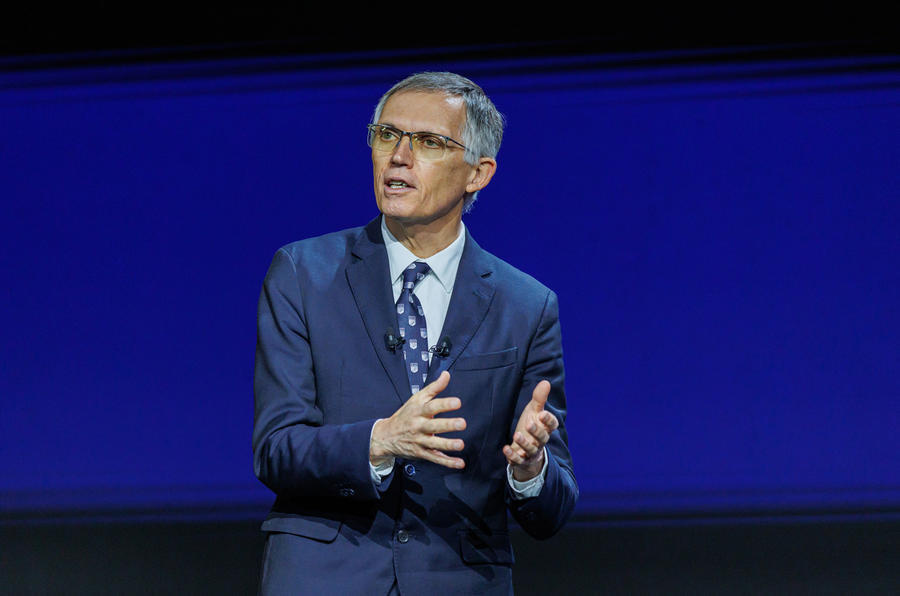Stellantis boss Carlos Tavares has branded the current ZEV mandate a "terrible thing for the UK" and warned that it could "kill" the domestic automotive industry.
Under the current terms of the ZEV mandate, car makers must achieve at least a 22% sales mix of electric models in the UK this year or risk heavy penalties. That proportion will rise in increments to 80% in 2030, on the way to ICE car sales being stopped in 2035.
Speaking to UK journalists from Stellantis's small-van factory at Ellesmere Port, Tavares agreed with the logic behind this notion, saying "I think the fact that they're imposing a ramp-up of [EV sales] makes sense" but adding: "The problem is the magnitude and the positioning of the ZEV mandate vis-à-vis the natural demand of the market."
He estimated that "the natural demand of the market today in the UK for BEVs is half of the mandate" and cautioned of the dangers of boosting this proportion with legislation and fines.
"That's where things start to go off track," he said. "The ZEV mandate as it is crafted today is a terrible thing for the UK."
"If your mandate is imposing on you a level of BEV sales mix that is the double of the natural demand of the market, and if the ZEV mandate is putting you in a corner by saying 'if you don't meet this, I'm going to kill you with fines', then the consequence is that everybody will start pushing BEVs into the market, which then totally destroys profitability, which then destroys the company."

"If you put everything in the red, you destroy the business, and you destroy the industry that supports the business, so that's strange."
He summarised: "This is not rocket science. You have a mandate that is going to kill your industry."
Tavares said he met with UK transport secretary Mark Harper yesterday (24 April) and proposed two alternatives to the current ZEV mandate structure, which theoretically "do not cost one penny to the UK taxpayer".










Add your comment